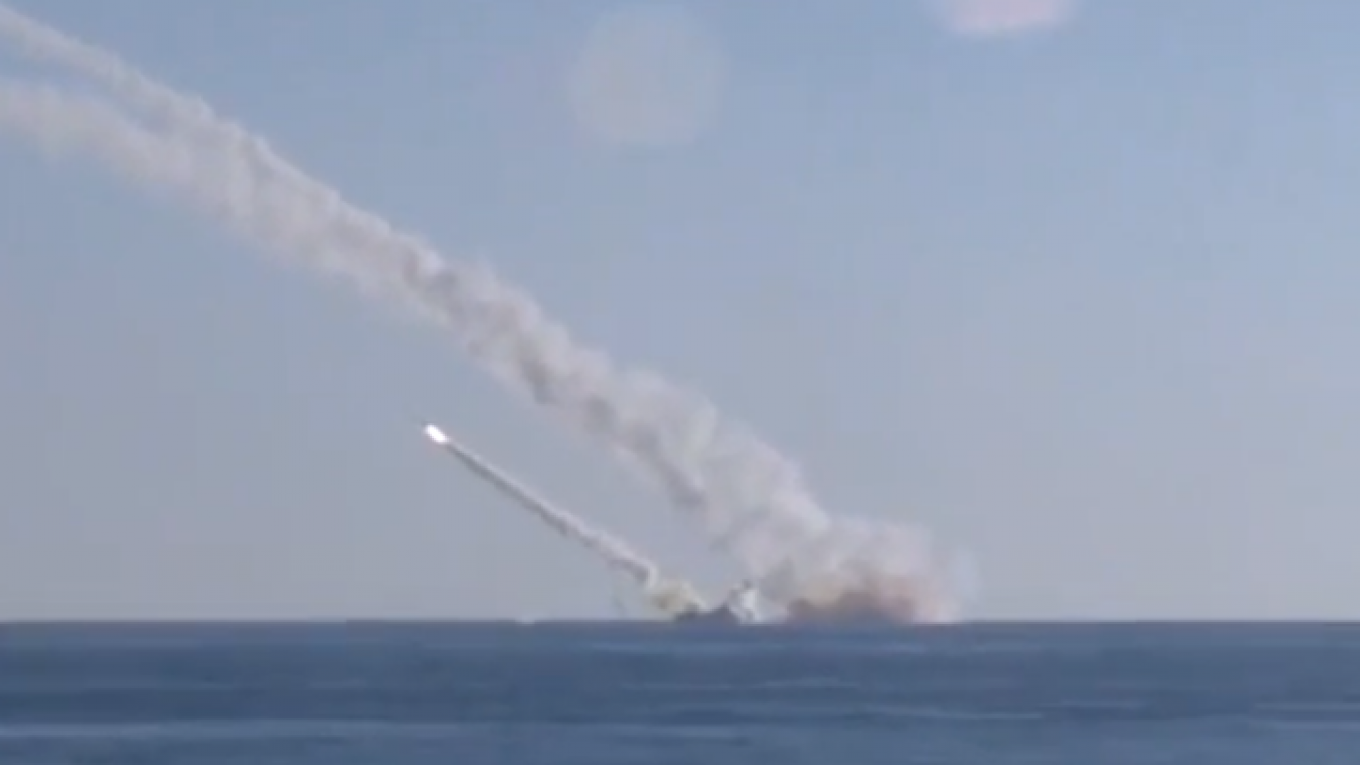Russia has hit targets in Syria with cruise missiles launched for the first time from a submarine in a submerged position in the Mediterranean Sea, Russian Defense Minister Sergei Shoigu said Tuesday.
Kalibr cruise missiles launched from the Rostov-on-Don submarine hit “two large terrorist positions” in Raqqa, Shoigu told Russia's President Vladimir Putin during a meeting at the Kremlin.
Raqqa is a city in northern Syria that the Islamic State have proclaimed as their headquarters. The Islamic State is a terrorist organization banned in Russia.
Previously, the Rostov-on-Don submarine had been “firing” from surface positions in northern waters, Shoigu said, according to a transcript of the meeting released by the Kremlin.
Russia said it had also struck targets in Syria with 26 missiles launched in October from warships in the Caspian Sea.
The latest round of air strikes also involved Tu-22 bombers, lifting off from a base in Russia to perform 60 sorties over the past three days, Shoigu told Putin.
“We can say with complete confidence that rather serious damage has been inflicted on ordnance storage facilities, factories producing various types of mines, and, naturally, on oil infrastructure,” the defense minister said.
Russian warplanes have also been flying from the Khmeimim airbase near Latakia in Syria, he said.
The Russian Defense Ministry had notified Israel and the U.S. about the missile strikes before launching them, Shoigu said.
Putin praised the air strikes and pointed out that Kalibr missiles “can carry conventional warheads, as well as special warheads — that is, nuclear ones.”
“Naturally, none of that is needed in fighting terrorists [and] I hope, will never be needed,” he added.
A Message from The Moscow Times:
Dear readers,
We are facing unprecedented challenges. Russia's Prosecutor General's Office has designated The Moscow Times as an "undesirable" organization, criminalizing our work and putting our staff at risk of prosecution. This follows our earlier unjust labeling as a "foreign agent."
These actions are direct attempts to silence independent journalism in Russia. The authorities claim our work "discredits the decisions of the Russian leadership." We see things differently: we strive to provide accurate, unbiased reporting on Russia.
We, the journalists of The Moscow Times, refuse to be silenced. But to continue our work, we need your help.
Your support, no matter how small, makes a world of difference. If you can, please support us monthly starting from just $2. It's quick to set up, and every contribution makes a significant impact.
By supporting The Moscow Times, you're defending open, independent journalism in the face of repression. Thank you for standing with us.
Remind me later.






